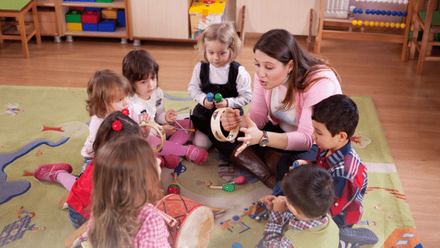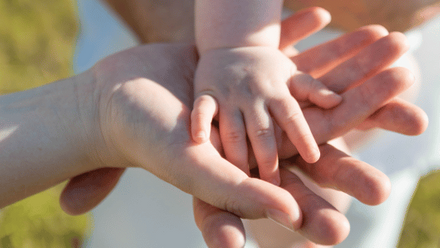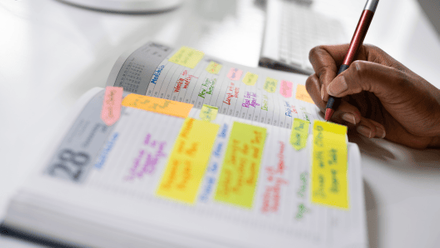How can I boost my emotional intelligence and support others?
Developing our emotional intelligence helps us manage our own emotions and our relationships, understand what others might be feeling, and inspire other people to feel good about themselves and their work.
It is not always easy to recognise what other people might be feeling, if they do not tell you or find it difficult to show their emotions. Emotional awareness is the ability to share and understand the feelings of another person. Once you start to understand and develop high emotional intelligence of the shades of emotions that you are feeling, it becomes easier to recognise them in others too and extend empathy towards others.
In this learning workout we share some tips and activities that you can dip into and try out for yourself.
How to improve emotional intelligence
I want to develop my ability to:
Treat everyone as an individual and show that I care about them.
Practising empathy helps us understand and connect with others. Being able to empathise with others can begin in many ways but a good starting point might be to notice and establish what is important to people. When a member of staff or a parent tells you about their lives – remember the details. It may be something about their work, their interests, or their family and friends. It makes people feel good when you act on these details – for example remembering a family pet’s name or taking interest in a parent or carer’s local business.
What can I do?
This week take time to have conversations that deepen your relationship with your colleagues and the families you work with. Without being intrusive, ask questions that help you to understand the whole person you are talking to for example:
- What do they like to do outside of work?
- What music do they like?
- What are their dreams for their future?
- What do these conversations tell you about their strengths – the things that come easily to the person and that they enjoy doing?
- Find an opportunity to acknowledge something a member of staff brings to the organisation and notice the impact of your acknowledgement.
I want to develop my ability to:
Recognise what other people might be feeling, even if they don’t tell me.
The definition of empathy is individual to each person but generally refers to someone’s ability to share and understand the feelings of another person. Once you start to understand the shades of emotion that you are feeling, it becomes easier to recognise them in others. For example, someone who behaves in an angry and confrontational way may in fact be feeling anxious and vulnerable. When you practise empathy, you empathise with another person and often lends itself to being easier to provide the right help and support. Think about how you do this with children and consciously apply the same approach to your colleagues and team members.
What can I do?
Over the next week, take time to see your setting through the eyes of a new parent visiting for the first time. Think of it as putting on your ‘parent glasses’
Think about:
- What do you see and observe?
- How might this make you feel if you were a parent? Does this view change as you transition through the rooms?
- Notice what the environment looks like through a parent’s eyes.
- Listen to how people talk, what is said (and not said).
- Perhaps you might ask some parents about their first impressions. Try not to look for confirmation of any ideas you may already have. Simply experiment with trying on a new perspective.
I want to develop my ability to:
Know what causes fluctuations in my emotions and manage any stress in a controlled way.
We all have unique triggers – the things that people do or say that make us feel strong emotions or even behave irrationally. We fall into blaming other people and acting in a way that is out of proportion with the situation. When we do this, it is usually because we feel that our needs are not being met or recognised - to be liked, to be valued, to be in control, to feel safe. Needs are neither good nor bad, but when you know which of these holds an emotional charge, you are in a better position to control your behaviour than to be controlled by it. When you know your triggers, you can choose how you want to react.
What can I do?
Notice over this week when you are triggered. Practise the Focus and Choose exercise once a day and any time that you need it.
The good news is that emotional intelligence is a skill that we can call learn and develop, think of more as journey of self-reflection and self-awareness. Gaining a high emotional intelligence and implementing its practice in our daily lives allows us to recognise patterns in our behaviour and emotions, helping us better understand our own thoughts and reactions. This in turn helps you to build stronger relationships with others, manage stress, improve wellbeing, and make informed decisions about what matters most to you.
Find out more!







